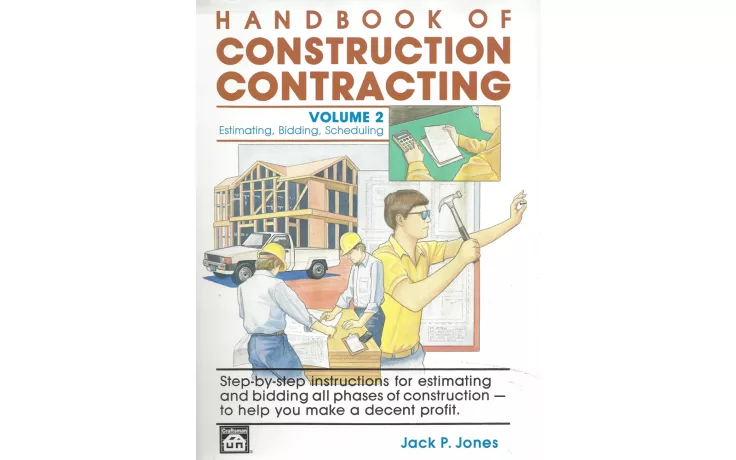Five Keys to Success in the Contracting Business
1. They think like businessmen, not roofers.
There’s nothing wrong with being a roofer. It’s an honorable calling, and the world certainly needs more of these skilled craftsmen. But once you go into business for yourself, you’re no longer a trade worker. You’re a business owner. Roofers work for you.Unless you’re a one-man operation, you need to put away the tools as soon as possible. As soon as you hire your first roofer, it’s time to start phasing out of the field work and start devoting yourself to the financial, people and marketing issues that determine success in this or any other business.
Most contractors never make that transition. They continue to wield the tools and run jobs rather than zero in on the business end. They continue to think like roofers, not like business owners. Consequently, they do not really own a business. They merely own a job, one that often ends up paying less than they could earn working for a business-oriented roofing contractor.
Most contractors think their technical know-how is the only thing necessary to succeed in the business. In reality, it’s only a small part of what’s needed, and not the most important part. You can be a mediocre craftsman and still succeed in the contracting business by hiring people with top-notch skills to work for you. But you won’t succeed being a great craftsman and a lousy businessman. I’ve never heard of a contractor that went broke because he lacked the technical skills to do the work. I’ve known plenty that went bankrupt because they failed to crunch the numbers, mismanaged people and didn’t understand marketing.
Finances, employees and marketing. Those are the areas contractors need to focus on. Everything else can be delegated.
2. They know their costs of doing business.
The most prevalent business shortcoming I’ve observed among contractors is failure to understand their costs of doing business. Too many simply don’t completely measure their overhead.Many contractors own an old beater of a truck but wouldn’t think of building a depreciation factor into their overhead. Even if it’s paid for, every mile you drive a vehicle is one mile off its useful life. Eventually you’ll need to buy a new one, and where is that money going to come from? You need to build it into your cost of doing business.
It requires detailed bookkeeping and a chart of accounts to keep track of every expense you incur in delivering your services to customers. Once you capture all the hidden costs of doing business, you need to come up with a realistic estimate of how many billable hours of labor you will sell over a period of time, and divide overhead by those billable hours to come up with a dollar-per-hour overhead figure. Then you need to factor that into your labor rates. Some of your expenses may seem very small, costing only dimes per day. But add them up over the course of the year, and they can make a big difference in the health of your business.
Once you know your costs, you can focus on controlling them, which is something else you need to do to succeed. But it makes no sense even to think about cutting costs before you have a firm grasp of what they are.
3. Successful contractors don’t work cheap.
I’ve only met a handful of contractors over the years who make a good living in competitive bid markets. They do that by running a tight ship and being enormously productive with prefabrication and other efficiencies. But I mean it when I say a “handful.” I can count them on the fingers of one hand. It’s hard to make a good living strictly on competitive pricing.The vast majority of successful contractors I’ve met charge more than the so-called “going rate” for their services. That’s because of Key #2 — they know their costs of doing business. And once they know their costs, they understand they can’t make a good living charging what everyone else does. Instead, they find a niche in the market where price competition isn’t so intense, or where customers are willing to pay more for top-quality workmanship and service. You need to develop specialties or a reputation for excellence that will result in negotiated jobs for people who appreciate high quality and are willing to pay what’s required to deliver it.
Another thing is: Successful contractors don’t think “selling” is a dirty word. The best chance for extra profit in your business is to convince people to do themselves a favor by buying add-ons and upgraded products from you. In most cases, it takes no more labor to install expensive materials than run-of-the-mill stuff, but most contractors are so intent on keeping their prices down they won’t even try to sell customers the more expensive product. Many think that just because they can’t afford a little luxury in their lives, their customers can’t either.
I’m not talking about fast-talking people into buying things they don’t need. It’s simply a matter of offering suggestions and choices. Walk into any McDonald’s and you’ll find everyone trained to ask, “Would you like fries with that … would you like to super-size your order?” This is the kind of selling I’m talking about. There’s nothing unethical about it. It’s just good business.
4. Successful contractors continue to progress.
“Grow or die” is a famous quote from Peter Drucker, probably the greatest management consultant who ever lived. This doesn’t mean every contractor has to employ hundreds of workers. Many of you don’t want the headaches that come with getting big, and it’s more important to be profitable than to generate large revenues.Yet, some amount of growth is necessary just for survival. That’s because studies show that every business loses around 9 percent of its customers each year to natural attrition. People die, or move away, or make new friends in the business, and you lose those customers through absolutely no fault of your own. You have to continue to grow your business just to make up for those losses. That’s one aspect of what Peter Drucker meant by “grow or die.”
I prefer the term “make progress.” Growth means not only increasing revenues, but also staying on top of developments in the world of business. It means keeping up with both field and office technology. It means belonging to trade organizations and networking with colleagues from different parts of the country. It means constantly learning and adapting new techniques into your business. It means steadily computerizing your operations so you can operate more efficiently and effectively.
The successful contractors I’ve observed aren’t all big, but they all are progressive in keeping pace with the changing world of business.
5. Successful contractors love their work.
I’ve never met a successful businessman, in any field, who didn’t have a passion for the business. Running a business is hard work and filled with aggravation. If you don’t love what you’re doing, you’ll get burned out quickly, and that’s not a path to success.And this brings us back to Key #1. I’ve met too many people in this industry who love roofing, but not the business of contracting. They seem miserable all the time. You’ve all seen them around. They’re the kind of folks who are always griping about customers, griping about competitors, griping about their suppliers. They find fault with everyone but themselves. Many of these folks want nothing more than to be hammering and cutting. They are roofers and think like roofers. I repeat: There’s absolutely nothing wrong with that. Except they don’t belong running a contracting business. They should be out there doing what they love to do.
The successful contractors face the same problems the complainers do. They, too, have trouble finding competent workers. They, too, face stiff competition. Yet, the successful contractors manage to overcome these day-to-day aggravations and find a bright side to their business. Usually that bright side has to do with making money.
They love coming to work every day because they find the business stimulating and it brings them prosperity. There are few things in life more rewarding than making a good living doing what you love. If you can honestly say that you love going to work each day, then I would say you’ve mastered the five keys to success in your business.
Looking for a reprint of this article?
From high-res PDFs to custom plaques, order your copy today!






